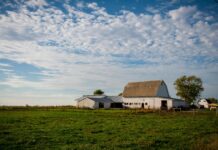DES MOINES, Iowa — As we move into fall, there are many on-farm tasks that need to be adjusted, such as ventilation and rodent control.
One practice that needs to be added to the list is influenza protection, specifically to prioritize flu vaccinations for everyone working on a pig farm. A seasonal flu vaccination is a public health recommendation and part of the One Health approach to protect people, pigs and the global environment.
The Centers for Disease Control and Prevention (CDC) recommends that everyone 6 months of age or older be vaccinated annually against seasonal influenza.
The seasonal influenza vaccine is available now, so people should be vaccinated as soon as possible to prompt their immune system to prepare for flu season, which typically stretches from October to May.
“Equally important, farms need to have sick-leave policies in place that encourage workers to stay home if they are suffering from flu-like like respiratory symptoms,” said Heather Fowler, DVM, director of producer and public health for the Pork Checkoff. “While it’s especially important to stay off the farm, people need to stay away from public places and take time to rest and recover. This will help shorten the duration and impact of the infection.”
Contagious
Influenza is a virus, and infections can last three to seven days, although a cough can persist for more than two weeks.
“People with active infections can be contagious for several days,” Fowler said. “They should not return to work for at least 24 hours after their fever breaks without using a fever-reducing medication.”
Other on-farm practices should receive extra attention this time of year, including reviewing the Pork Quality Assuance® Plus (PQA Plus®) section that addresses influenza.
Critical steps
Animal caretakers should wash their hands and arms frequently with soap and water. Keep hands away from mouth, nose and eyes.
Monitor animal health daily and contact the herd veterinarian immediately if influenza is suspected. A rapid response is helpful when treating sick pigs and may also minimize losses and further spread.
Maintain proper building ventilation and barn hygiene to help reduce influenza virus transmission. Ensure bird and rodent control programs are well established.
Do not allow anyone with flu-like symptoms to enter the facility, and ask visitors about recent contact with others who may have been ill. Restrict eating in animal areas.
“The good news is that seasonal flu vaccinations are widely available today, including convenient options, such as a quick stop at the local pharmacy or clinic,” Fowler said. “Getting vaccinations and following protocols to reduce the potential transmission of influenza this season is one more step in doing what’s right for people, pigs and the planet.”










